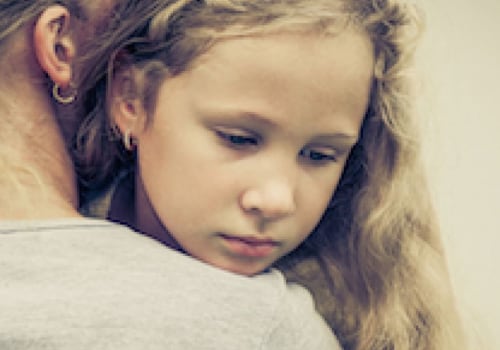Offer a variety of activities for them to do. Set clear limits on your child's behavior. Don't fuel their emotional outbursts. Don't forget to take care of yourself.
For example, imagine that you have to answer an important call, but while you are talking on the phone, your children decide that it is a good time to start a wrestling match. While you try to look like you're involved in the phone conversation, you tell your kids that “if you don't stop this right now, I'll lose it when it's over, look,” but to no avail. You continue with non-verbal silence as you run from room to room in search of peace of mind, but the fighting match seems to follow you. And at the end of the phone call, you feel like you just ran 5 miles.
If your child annoys you and negotiates a lot due to inconsistencies in the past, you can end it with three simple words and get back to normal. As a parent, you give your children a good start in life, you care for them, protect them and guide them. Parenting is a process that prepares your child for independence. As your child grows and develops, there are many things you can do to help him or her.
These links will help you learn more about your child's development, positive parenting, safety and health at every stage of your child's life. In the 1920s, Viennese psychiatrists Alfred Adler and Rudolf Dreikurs introduced positive parenting strategies to the United States.1.Since then, parenting experts and programs around the world have refined and championed several positive parenting solutions. On the contrary, harsh and punitive parenting in early childhood tends to cause more behavioral problems. Parents who are cold, indifferent, and unresponsive raise their children with worse self-regulation, further aggravating the child's behavior problems2.Children who are resilient and self-confident have fewer family conflicts and better connections with their parents who love them.
They tend to have better mental health3.Children with positive parents enjoy greater academic success4,5.A better parent-child relationship as a result of this parenting style is also strongly associated with school performance. But it's hard to remember all the 1001 solutions or to always have the book handy when you need it. That's why it's important to be creative and flexible when it comes to disciplining. Benefits of Sensory Play and 21 Sensory Activities for Preschoolers.
The goal is to empathize with children, offer them affection and support, and create situations that make it easier for children to behave cooperatively and constructively (p. e.g. There is also evidence that the approach works in the classroom. When high school teachers were trained to replace punitive disciplinary policies with empathy and supportive problem solving, suspension rates were cut in half (Okonofua et al., 201.So how can we make it happen? Here are 10 tips for getting the best out of your children.
The ideal is to anticipate and prevent problems by taking preventive measures (p. For example, if you know that preschoolers are fighting over a toy, keep it out of sight and provide the children with something else to do, something that doesn't cause conflict. Ordering them to stop isn't very useful on its own. They may feel overwhelmed by feelings of outrage, confinement, or discomfort.
They probably don't know how to stop. If you actively involve them in a distraction, such as a game of 20 questions, you'll make it easier for them to stop fighting. How can you do this? Clinical psychologist Timothy Cavell suggests that you imagine a kind of quota system, setting priorities on what misconduct to report and what behavior to ignore, at least for now (Cavell et al., 201.So if your child wants to do something that is out of the question, don't be dismissive or damning). Help your child find acceptable alternatives.
For young children, this could mean offering a quick distraction. For teens, this could mean participating in meaningful discussions and negotiations. Experiments suggest that adolescents are less likely than adults to learn from negative comments, especially if they don't see any rewarding options available (Palminteri et al., 201.Positive parenting and positive discipline focus on teaching good behavior through kind and firm parenting techniques). Positive parenting means that parents can raise happy children in ways that reflect their family's values and beliefs.
One of the biggest differentiators between positive parenting techniques and other parenting methods is the focus on discipline over punishment. Parents who aren't familiar with positive parenting techniques are often surprised when I discourage them from using rewards. Positive parenting is a parenting principle that assumes that children are born good and with a desire to do the right thing. But with the right tools, I believe that all parents can become the parents they've always dreamed of being.
Positive parenting and positive discipline won't produce the behavioral changes parents want overnight. Effects of the parental friendship coaching intervention on the emotional socialization of parents of children with ADHD. After seeing the effects firsthand, I knew that I needed to share this philosophy of positive parenting and corresponding disciplinary strategies with parents around the world. Positive parenting begins when the parent becomes a positive role model for the child and gains knowledge about child development.
. .












Leave Message